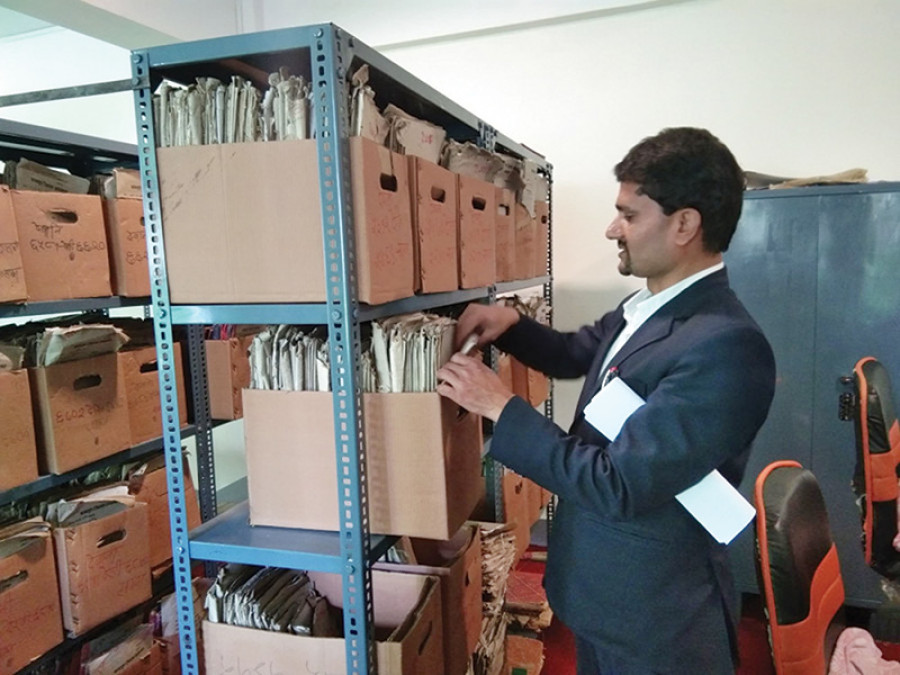National
Despite austerity rules, recurrent expenditure continues to surge
Financial Comptroller General Office warns of action against public offices not following austerity measures.
Prithvi Man Shrestha
The government’s recurrent expenses have been rising even after it introduced a set of austerity standards in late November to control unnecessary spending in view of the Covid-19 pandemic.
The government is struggling to generate enough resources, particularly for the health sector, due to the Covid-19 pandemic. Given this situation, the government, in November, had introduced a set of standards on austerity.
But, according to the Office of the Financial Comptroller General, which keeps record of the government’s income and expenditure, the government’s administrative expenditure has gone up by Rs34 billion, as of January 4, compared to the same period during the last fiscal year.
As of January 4, the government has spent Rs317.94 billion from the budget of the current fiscal year—a significant increment compared to the Rs283.83 billion spent during the same period last year, according to the Office Financial Comptroller General.
The total budget allocated for recurrent expenditure in the current fiscal year is lower than that of last year. But expenditure under this heading has grown exponentially this fiscal year.
The budget allocated for this year’s recurrent expenditure is Rs948.94 billion compared to Rs957.10 billion last fiscal year.
Despite introducing the standards, the government has been taking decisions that increase the burden on the state coffers. After the introduction of the standards, President Bidya Devi Bhandari announced snap parliamentary elections on April 30 and May 10 as per the Cabinet decision after dissolving the House of Representatives. The government will have to spend billions of rupees on elections amid difficult financial situations.
For the last provincial and local elections, the government had spent over Rs16 billion through the Election Commission and security agencies.
The government will also have to allocate resources for people recommended for appointments in various constitutional offices if legal challenges against their recommendation do not succeed.
“We cannot say the government is serious about implementing the austerity standards considering its move to increase recurrent expenditure,” said Bhanu Acharya, former auditor general. “Given that the elections have already been announced, the government will spend its budget on distributive programmes to influence voters.”
As per the standards, no decision should be taken to create new financial liabilities without ensuring the availability of resources. Public officials also need to adopt austerity measures in expenses related to fuel, electricity, and office materials.
Public offices need to upload their publications on their respective websites instead of printing them out on the paper if they are not required to do so by law. Any duplication in programmes among federal, provincial, and local governments should be avoided. Public entities need to organise workshops and interactions virtually and residential workshops should be avoided.
Similarly, the guidelines say that new recruitments in public offices for daily wage work should be kept on hold, except in the case of drivers and office assistants. Public officials who are provided housing facilities in government-owned buildings and those who have their own home, cannot receive funds in the name of housing facility, according to the standards.
An official at the Office of the Financial Comptroller General said that government agencies that fail to adopt austerity measures as directed by the Finance Ministry recently, could be barred from getting extra funds depending on the degree of violation.
By issuing a circular in the name of the district treasury offices, the agencies under the Office of the Financial Comptroller General, on Sunday, the office told them to check if any government office has violated provisions laid out in the austerity standards.
“We have directed the district treasury offices to check if the government agencies have followed the austerity measures or not,” said Gyanendra Poudel, spokesperson for the office. “If any office is found to have violated the provisions of the standards, we can stop releasing their budget.”
In most cases, the office would recommend the concerned offices to rectify work that violates the standards. As per the standards, office bearers and staff responsible for causing losses to the government by violating these standards are subject to compensate for the losses caused.




 14.12°C Kathmandu
14.12°C Kathmandu














